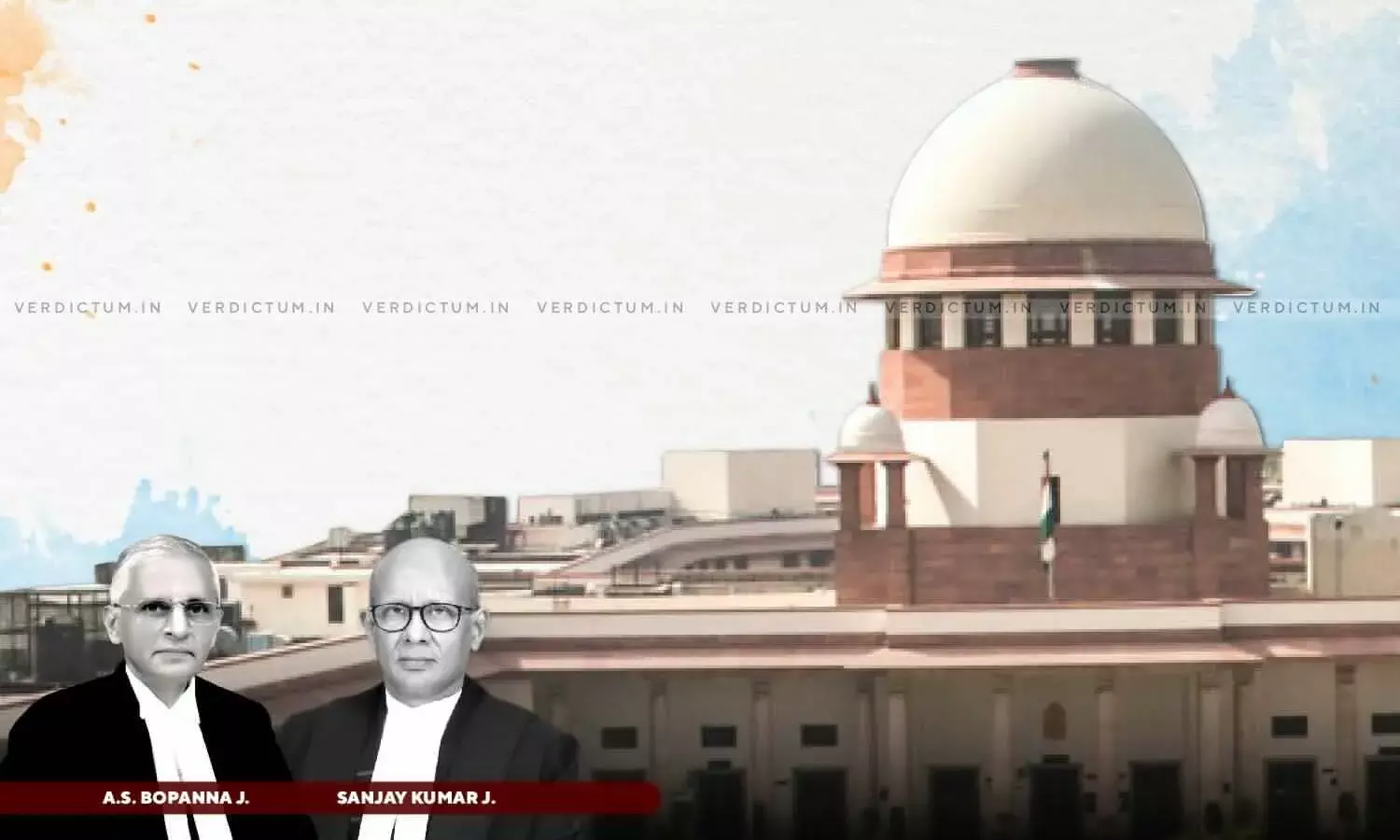Mere Omission To Frame Points For Determination Will Not Vitiate First Appellate Court's Judgment: Supreme Court
The Supreme Court has observed that even if the first appellate Court does not separately frame the points for determination arising in the first appeal, it is not fatal as long as that Court deals with all the issues that actually arise for deliberation in the said appeal, in compliance with the mandate of Order 41 Rule 31 CPC.
In that context, the Bench of Justice AS Bopanna and Justice Sanjay Kumar observed that, "the mere omission to frame the points for determination would not vitiate the judgment of the first appellate Court, provided that the first appellate Court recorded its reasons based on the evidence adduced by both parties. Thus, even if the first appellate Court does not separately frame the points for determination arising in the first appeal, it would not prove fatal as long as that Court deals with all the issues that actually arise for deliberation in the said appeal. Substantial compliance with the mandate of Order 41 Rule 31 CPC in that regard is sufficient."
In this case, the two appeals stemmed from a shared judgment of the Gujarat High Court, where it favored the Ahmedabad Municipal Corporation in First Appeal No. 3596 of 2009 and dismissed Cross-Objection No. 81 of 2010 in the same appeal.
The Corporation's appeal contested a ruling by the City Civil Court, Ahmedabad, in Civil Suit No. 4583 of 1998, initiated by the appellants seeking compensation or alternative land allotment from the Corporation under Town Planning Scheme No. 6, Paldi, due to alleged failures in land allotment and possession. The appellants claimed deprivation of land pledged to them under the scheme since 1963, leading to monetary losses. The Corporation disputed the suit's maintainability, the adequacy of compensation, and the request for additional land allotment.
The Trial Court upheld the plaintiffs' claim for 974 sq. mts. of land but rejected their monetary compensation plea. The High Court upheld the Trial Court's decision, emphasizing that the plaintiffs accepted compensation without protest, thereby precluding further claims.
The Apex Court observed that, "having sought quantified damages... it was incumbent upon the plaintiffs to adduce evidence in support of their claim for this pre-determined sum. However, no evidence whatsoever was produced by them in support of the land values relevant to any point in time, be it of the original final plot or the final plot that was ultimately given to them. In the absence of such crucial material, the plaintiffs’ prayer for compensation necessarily had to be negated. Further, as there was never any guarantee that a plot owner who surrendered his land pursuant to a Town Planning Scheme would be allotted any land after reconstitution of the plots, the plaintiffs cannot assert any vested right in that regard."
Therefore, the Supreme Court took the view that the High Court was fully justified in allowing the first appeal filed by the Corporation and non-suiting the plaintiffs in entirety.
Accordingly, the appeals were dismissed.
Cause Title: Mrugendra Indravadan Mehta & Ors. vs Ahmedabad Municipal Corporation
Click here to read/download the Judgment



